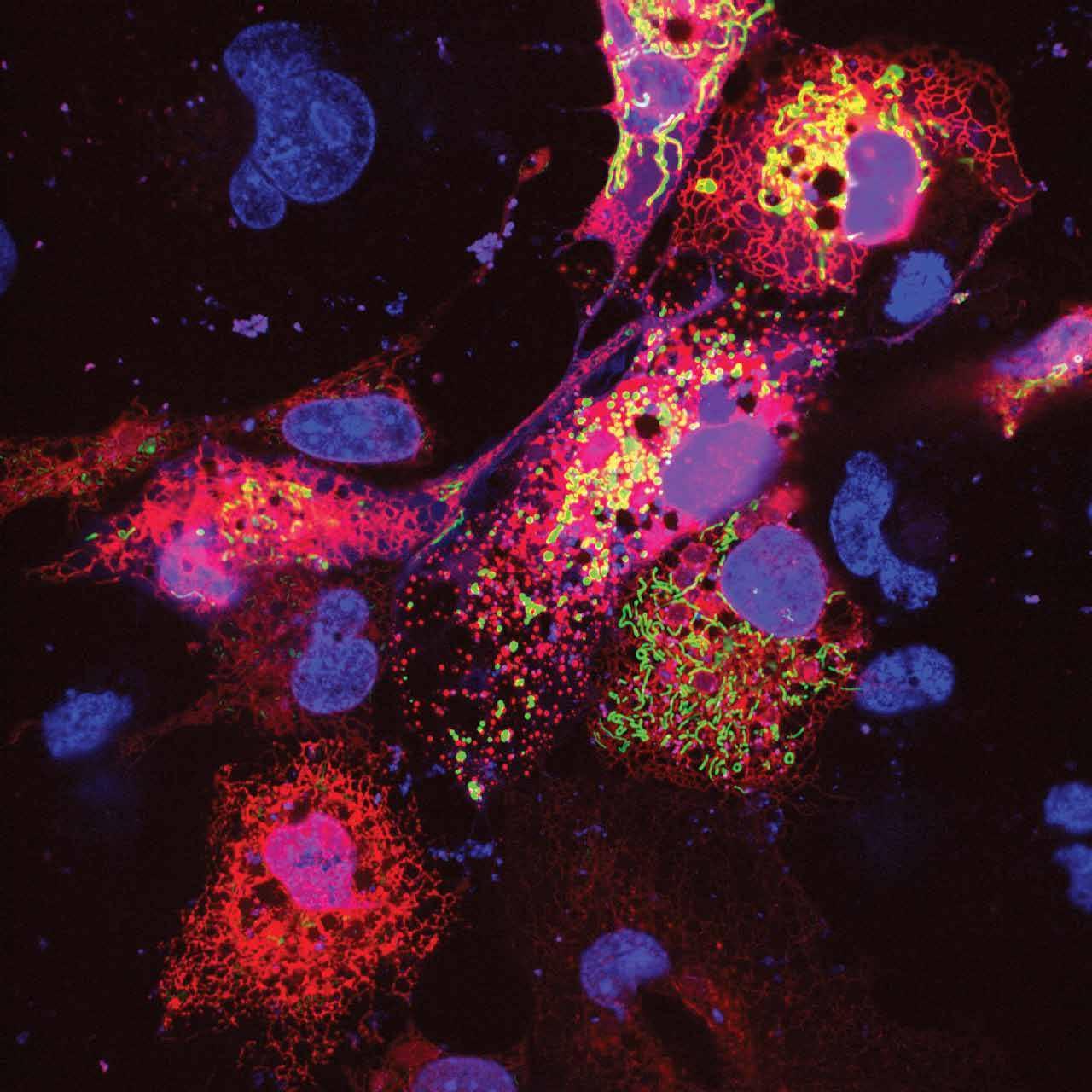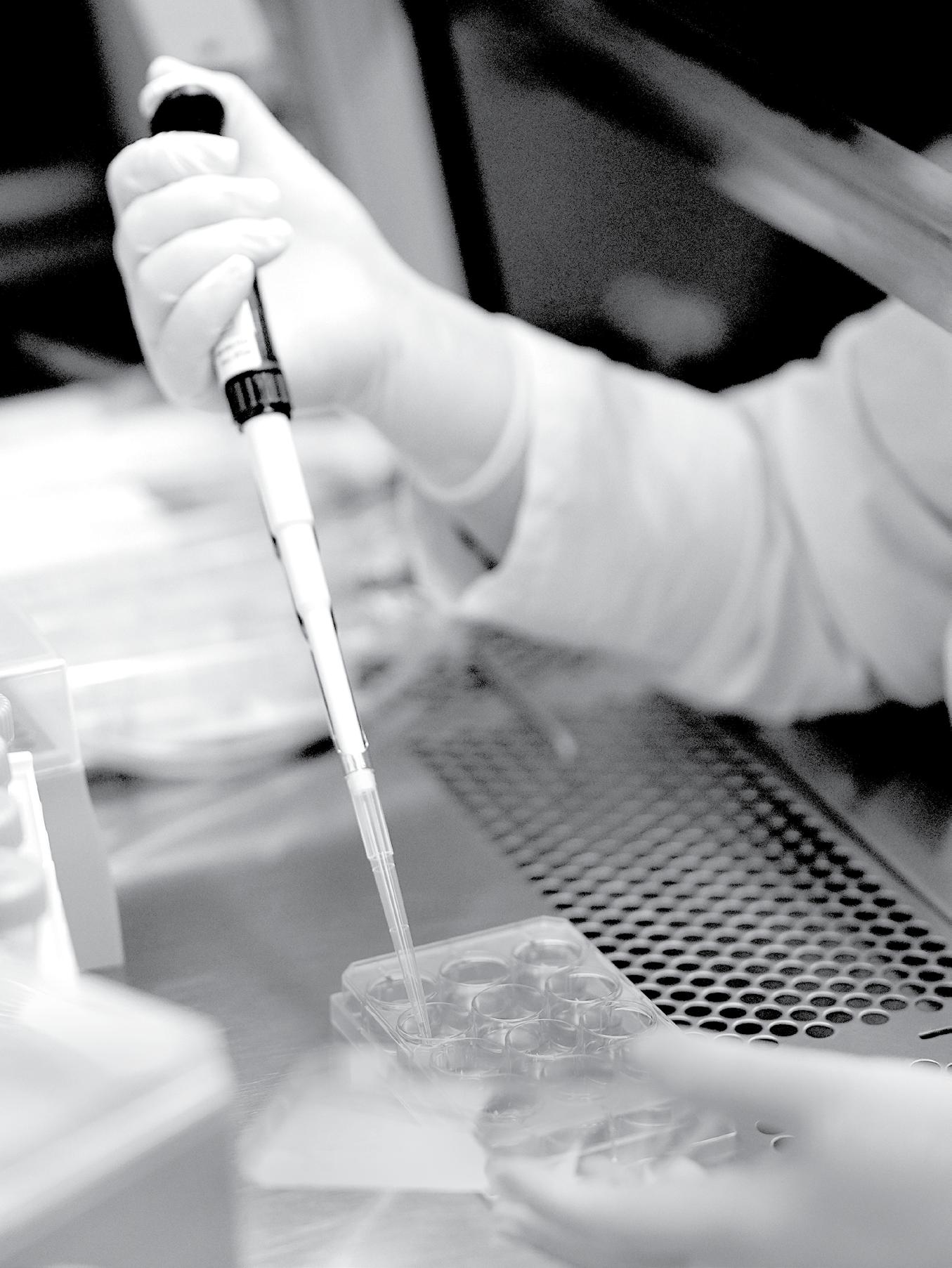
3 minute read
Letter from Gökhan S. Hotamışlıgil
“ In science, every contribution is valuable and paves the way for important breakthroughs. Milestone discoveries lift the entire field as researchers around the world start building on top of this new foundation of knowledge. From a metabolic perspective, this is the kind of work we have been aspiring to and are now able to focus on at the Sabri Ülker Center, and this is why I am more optimistic than ever that collectively we can make real progress against the most dangerous diseases.”
DEAR FRIENDS,
Advertisement
This past year has been extraordinary and disorienting for all of us. COVID-19 has profoundly altered so much, from activities at home and in our lab in Boston to the lives of our collaborators, alumni, friends, and families worldwide. We witnessed the suffering and mourned the loss of human life around the world. In these uncertain and tumultuous times, I have been so heartened by and appreciative of the ways that members of our scientific community have strengthened international solidarity and remained united in search of new solutions. Compared to many, we have been fortunate to be able to withstand the challenges and contribute to the effort to ease the suffering. For the first time in its 25-year history, we even needed to temporarily close our laboratory. I am proud that despite these challenges, our lab managed to quickly develop a protocol to maintain its activities and, to the best of our ability under the circumstances, has continued to contribute to the understanding of the cellular and molecular mechanisms that underlie metabolic diseases and their implications for the current global crisis.
I am pleased to share with you this sixth annual report of our progress including some important scientific developments, publication highlights, profiles of some of our newest lab members and two new affiliated faculty members, and the highlights of the Center over the past year. We are continually grateful for the support of the Ülker family, which has made all of this possible during these turbulent months. There is a tremendous value in studying a process as fundamental as metabolism. The COVID-19 pandemic demonstrated, once again, that studying diseases that emerge from metabolic problems, such as obesity and diabetes, is of such critical importance as these problems constitute the most important risk factors for disease progression, severity, and death from the Sars-CoV-2 virus. We are now engaged in collaborative efforts to explore the impact of metabolic and immunometabolic responses to the virus and implication of central regulators of these processes on COVID-19. We are also exploring new experimental models and translational tools that might aid in our understanding of COVID-19 and its short- and long-term complications.
During this year, the generosity of the Ülker family made it possible for us to establish the new Sabri Ülker Center Physiology Laboratory, featuring state-of-the-art and expanded technologies to study metabolism, in vivo. We also improved our Imaging Lab, and initiated efforts to expand our imaging and analytical capabilities and collaborations. We also completed our first important large-scale study using these platforms. Finally, through a Harvard initiative called Lab 1636, we embarked on an academia-industry alliance to advance one of our fundamental discoveries for clinical applications against diabetes.
To be successful in our ongoing fight against the greatest threats to global human health, we continue to promote global scientific development. A major component of this effort is the annual international Symposium on Metabolism and Life. Though postponed from our planned offering in 2020, we will be excited to welcome you all to join our Symposium program in May 2021 and hope that this day will mark a celebration of not only science but also a return to a sense of normalcy and health in our personal and professional lives.

Gökhan S. Hotamışlıgil, MD, PhD
Director of the Sabri Ülker Center for Nutrient, Genetic, and Metabolic Research James S. Simmons Professor of Genetics and Metabolism at the Harvard T.H. Chan School of Public Health
ASPIRING TO MAKE AN IMPACT



...BY DARING TO ASK “WHAT IF?”
We strive to dive deeper into basic science—to better understand the fundamental molecular mechanisms of metabolic control—in order to discover unique paths to follow and address the causes of chronic metabolic diseases, and ultimately, to develop novel therapeutic concepts.








